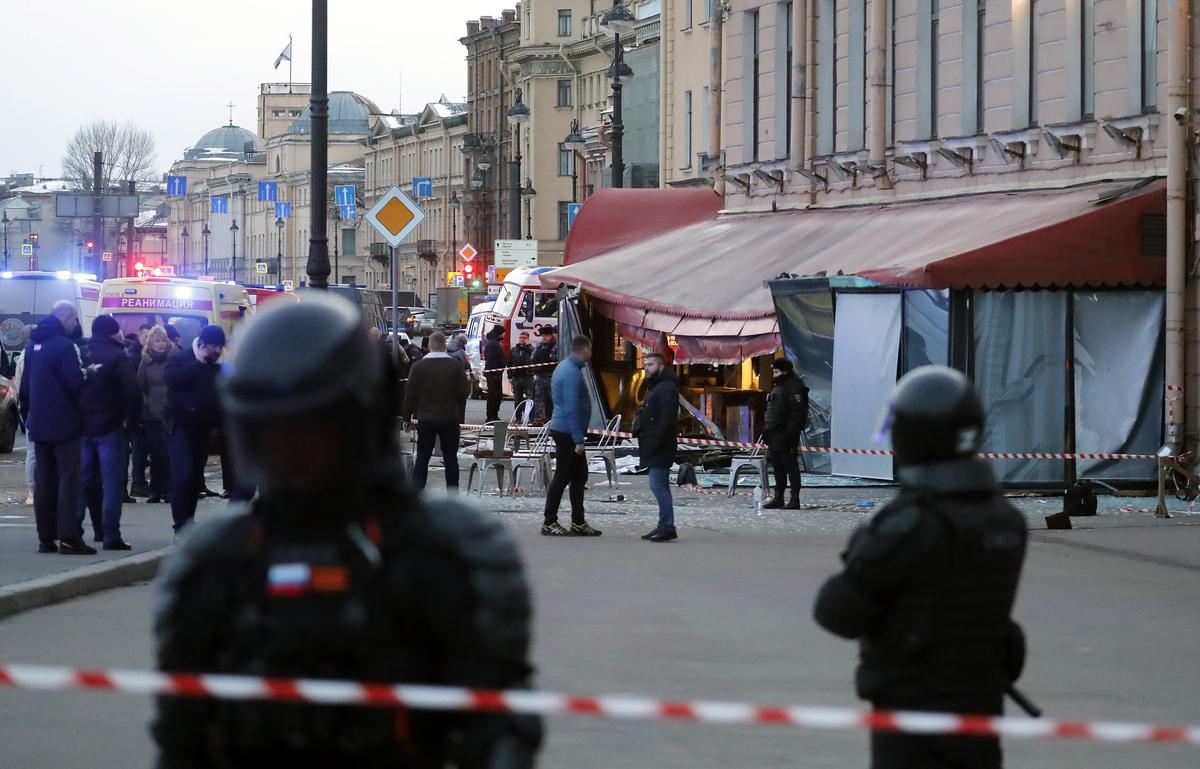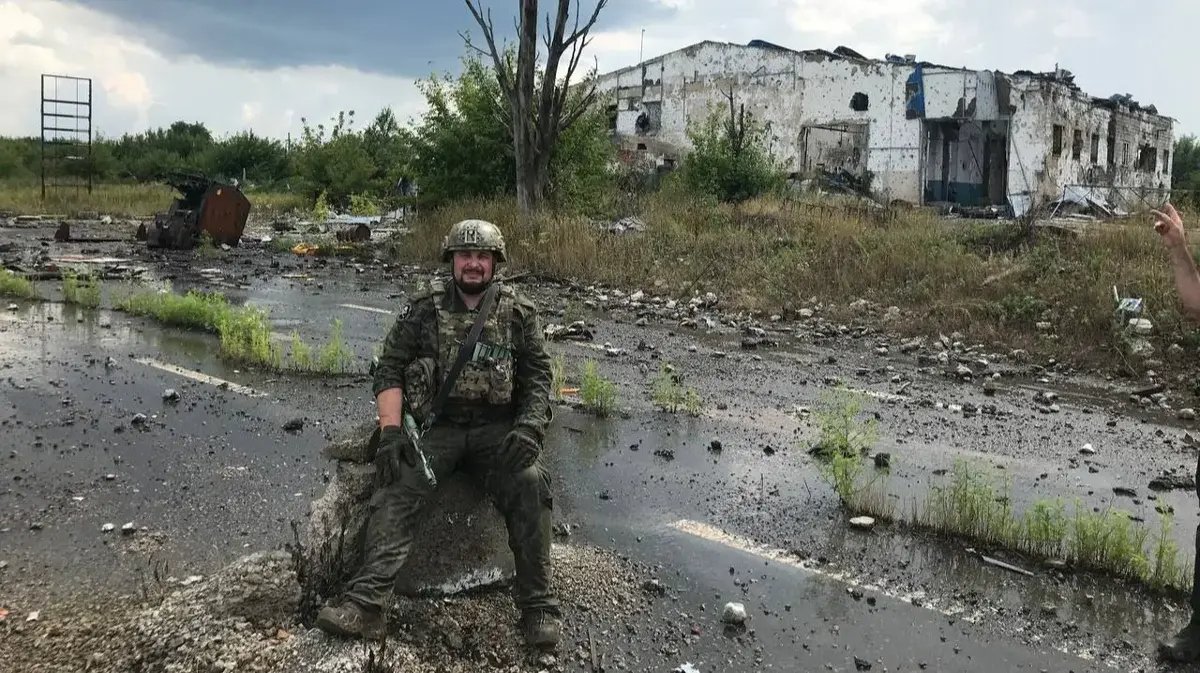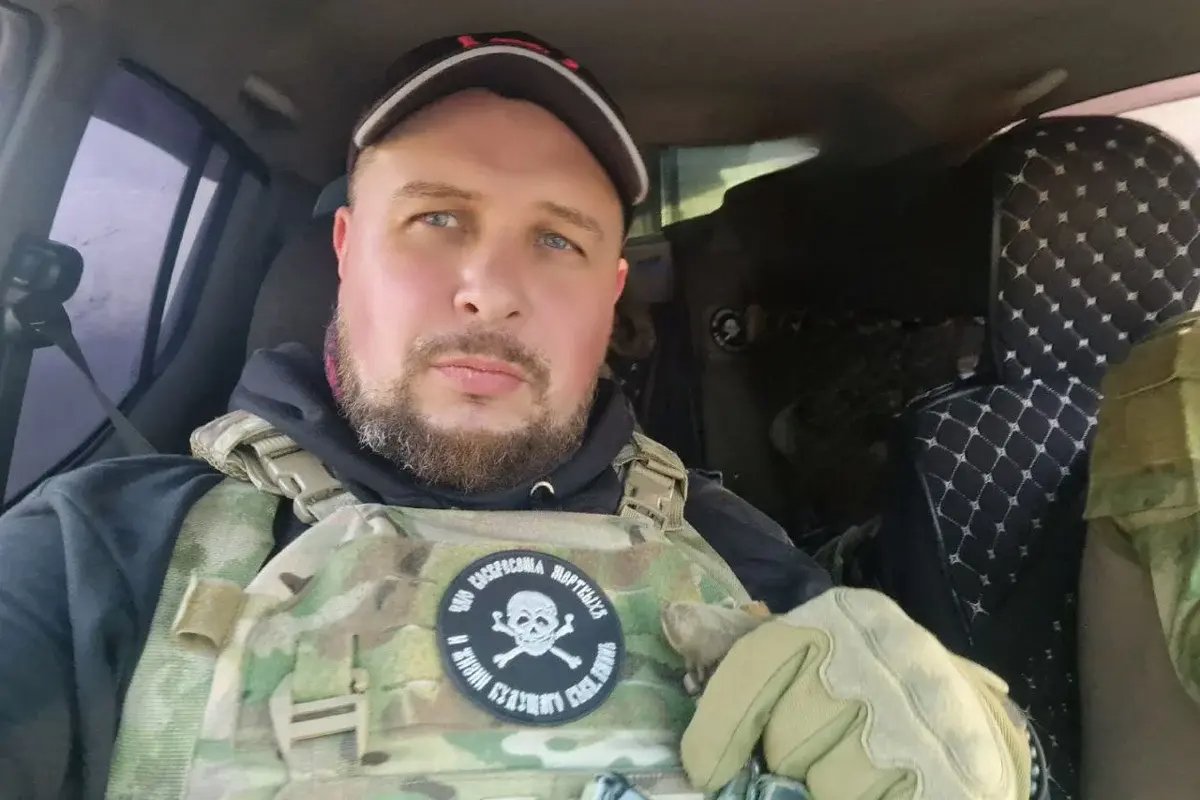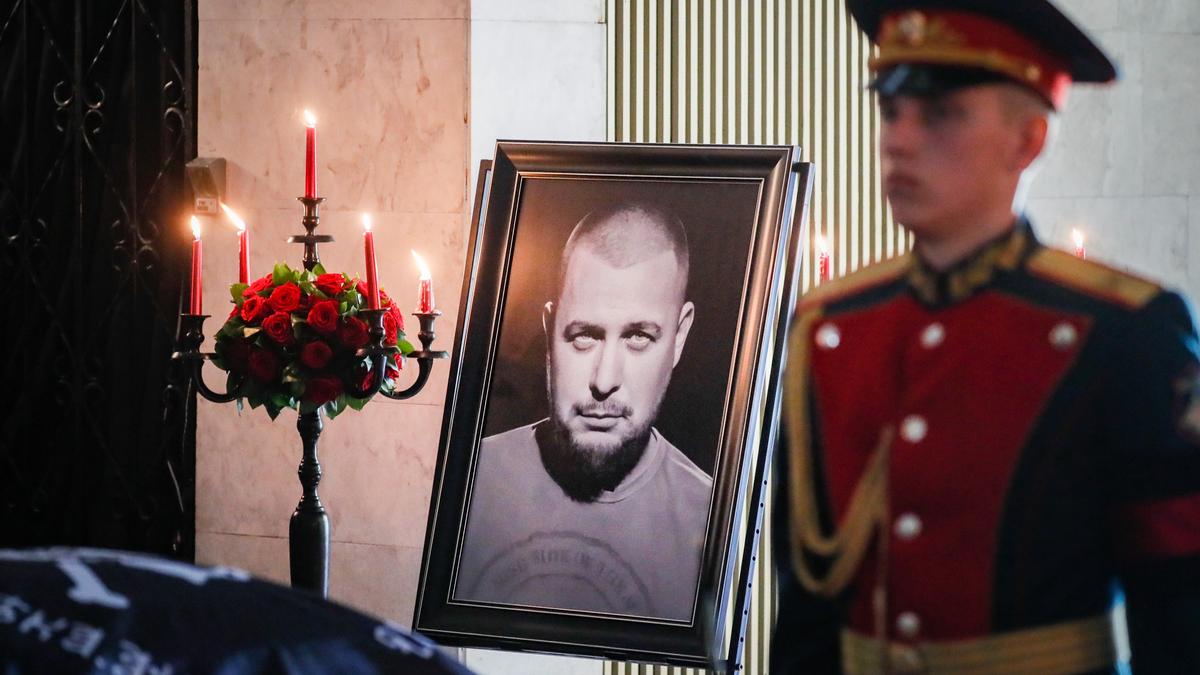When an exploding statuette prepared by Ukraine’s military intelligence ended the life of the odious Russian blogger and self-styled “war correspondent” Vladlen Tatarsky in a St. Petersburg cafe a year ago, it may have been the end of Tatarsky the man, but Tatarsky the Z-propaganda cult figure was just getting going.
Tatarsky was one of the better known of a group of reporters whose personal Telegram channels covering the Russian military’s invasion of Ukraine quickly became a popular alternative news source for Russians bored of state media.
Tending to report from the frontlines and often effectively embedded with the Russian military, the war correspondents’ reports felt first-hand. That combined with their readiness to criticise Russia’s Defence Ministry mandarins and the army’s top brass for their perceived failures in the campaign, lent the war correspondents a legitimacy that state media reporters lacked and brought some of them nationwide recognition.
To mark the first anniversary of Tatarsky’s assassination, political scientist Konstantin Pakhalyuk read his biographical and literary works to discover the man behind the self-made myth. What he discovered was a self-penned literary portrait of an amoral cipher; a cynical adventurer to whom ideology meant nothing, but to whom war, murder, and basking in reflected glory meant everything.

The scene of an explosion at a cafe in St. Petersburg that killed Vladlen Tatarsky on 2 April 2023. Photo: EPA-EFE/ANATOLY MALTSEV
Businessman, bandit, separatist
Born Maxim Fomin in the Donbas city of Makiivka in 1982, Tatarsky initially worked as a miner and then as an entrepreneur before taking up bank robbery, which eventually earned him an eight-year prison sentence.
After serving three years, Tatarsky escaped prison in 2014 amid the hostilities in Donbas, joining the pro-Russian separatist militia that had taken control of much of the region earlier that same year, and spent a month manning a “pointless” military roadblock before things began to change for him rapidly when he joined a reconnaissance unit.
In 2015, he transferred to the Vostok battalion, a Russian militant group in Donbas, which, he recounts, gave him his first chance to open fire on “the enemy”, albeit a drone. In late 2015, he was sent to “finish” his prison sentence, but four months later received a pardon from the head of the so-called Donetsk people’s republic, and soon found himself back at the front.
Tatarsky began writing books after transitioning from being a member of the pro-Russian militia to being one of the military bloggers who wrote admiringly about their exploits for a captive audience at home in Russia. In 2020, Tatarsky released Run, a fictional memoir of his pre-war life and his first months in the militia. The following year came War, which described his early experiences with Russian separatist groups before joining a Luhansk people’s republic militia intelligence unit. By the beginning of 2022, he had completed Meditation, a collection of short stories, which was published as full-scale war in Ukraine broke out.

Photo: Vladlen Tatarsky / Telegram
‘Absolute happiness’
Those who knew of Tatarsky before his memorable death might recall his incendiary rhetoric around the destruction of Ukraine. But this hatred is not readily apparent even in the books he wrote in the years immediately preceding the full-scale invasion.
Indeed, Tatarsky even admits to having initially supported the 2014 Maidan protests, prompted by an idealistic belief that “on the same barricades, confronting a vile and greedy system, Russian and Ukrainian patriots would understand each other”.
But a few pages later, he speaks of his unconditional support for the so-called “Russian Spring”, the term used by some to describe the 2014 pro-Russian protests and unrest in eastern Ukraine that led to the first war in Donbas, and he says he regrets not having participated in the annexation of Crimea.
He describes 2014 as a time of “absolute happiness”, as Russia flexed its muscles again on the global stage, symbolically casting off the multiple humiliations in its recent past: Afghanistan, the Chechen wars, terrorist attacks, and the advent of its own unique brand of robber baron capitalism.
The disparate reasons Tatarsky cites for joining the Russian separatist militia boil down to the following: war is the divine calling of the warrior and a way for the weak to become the strong.
Bandit warrior
Tatarsky cites three principle beliefs he took from his years in the criminal world: self-reliance, caste, and Orthodoxy. The first is fairly straightforward, but the other two are more opaque.
Viewing society as a caste system in which everyone belongs to a group, Tatarsky saw himself as a member of the “warrior” caste — a group he terms small but influential.
“The nature of a criminal is that of a degraded warrior,” he writes.
As for Orthodoxy, Tatarsky says he had been interested in the Gospel since childhood and that he had the opportunity to attend religious study groups while in prison. Indeed, his texts abound with references to the Bible, which are used to lend a veneer of decency to his life choices.
Outside of these three precepts, another key idea for Tatarsky is the “thieves’ code” — a set of unwritten behavioural conventions followed by organised criminals in the Soviet and post-Soviet eras. In War, Tatarsky writes that when he returned to prison to complete his sentence in 2015, he found strength and comfort in the code. For Tatarsky, remaining faithful to these criminal conventions was a way of preserving honour and dignity even when he and the other prisoners were beaten and forced to perform degrading tasks.

Photo: Vladlen Tatarsky / Telegram
The road to Mariupol
Tatarsky’s book offers graphic descriptions of the “lawlessness and cruelty” of the pro-Russian military groups in Donbas, including detailed accounts of rampant sexual violence.
The behaviour of the pro-Russian forces described in these passages might have qualified this book as an anti-war work, were it not for the evident gusto and delight with which Tatarsky describes these horrors.
After he left the army in 2019, Tatarsky returned to the front as a war correspondent. At that point he had become a Russian citizen, and was already a popular “war correspondent” as well as a drone gunner in the Vostok battalion — the same battalion that would go on to storm Mariupol.
He wrote about these events in early 2023, albeit with less flair than in his previous books. While on his channel online, Tatarsky’s rhetoric is emphatic, swaggering, and filled with a thirst for vengeance, he can barely conceal his growing disappointment with the reality of the Russian military, which he describes as poorly organised, incompetently managed, untrained, and under-equipped.
Simultaneously, however, his philosophical pro-war fervour only grows: he describes war as “something that keeps you young in body and soul”, and the propagandistic tropes that had been absent in his previous books begin to creep into his prose.
“This must be inside you, if you are a man: the readiness to fight and die for the Motherland!” he writes.
As for the civilian population of Mariupol, he describes them dismissively as being “unwilling to abandon material comfort to defend their spiritual values”.
War & sex
War and sex appear to thrill Tatarsky equally. He recalls that when, in summer 2014, fighting broke out near the prison where he was serving time, “the whistling of flying mines and shells stirred my blood, and even made me feel more cheerful. What was I thinking about? I was thinking about war and sex. I wasn’t thinking about anything else.”
Later that year, he joined the fighting in Mariupol and recounted how a whole month spent “drinking, in the bathhouse, having orgies, fighting and duelling with men from the other units” had flown by.
The pace of life was thrilling at first, but in War Tatarsky also reflects on its darker sides: “I remember thinking, ‘What am I doing here? Am I just homeless?’” Back in prison in the fall of 2015, he remembers coming to a bitter conclusion: “If you want to volunteer to fight for Russia, that’s your personal choice, and when you encounter difficulties you can only count on God, yourself and your friends. In Russia you are like a samurai — you have to do your duty, even if no one needs it. I am ready for that.”
At that time, Tatarsky was still a Ukrainian citizen, but he was already cultivating a new image for himself — one born from “traditional values”, bravado, and the idealised image of the thief. Six years later, he received a Russian passport and promptly began urging his newly acquired fellow citizens towards violence, murder and death. This is the essence of Tatarsky’s legacy, and it’s how he will be remembered (if he is remembered at all). The rest is just a cynical, postmodern charade.
Join us in rebuilding Novaya Gazeta Europe
The Russian government has banned independent media. We were forced to leave our country in order to keep doing our job, telling our readers about what is going on Russia, Ukraine and Europe.
We will continue fighting against warfare and dictatorship. We believe that freedom of speech is the most efficient antidote against tyranny. Support us financially to help us fight for peace and freedom.
By clicking the Support button, you agree to the processing of your personal data.
To cancel a regular donation, please write to [email protected]

